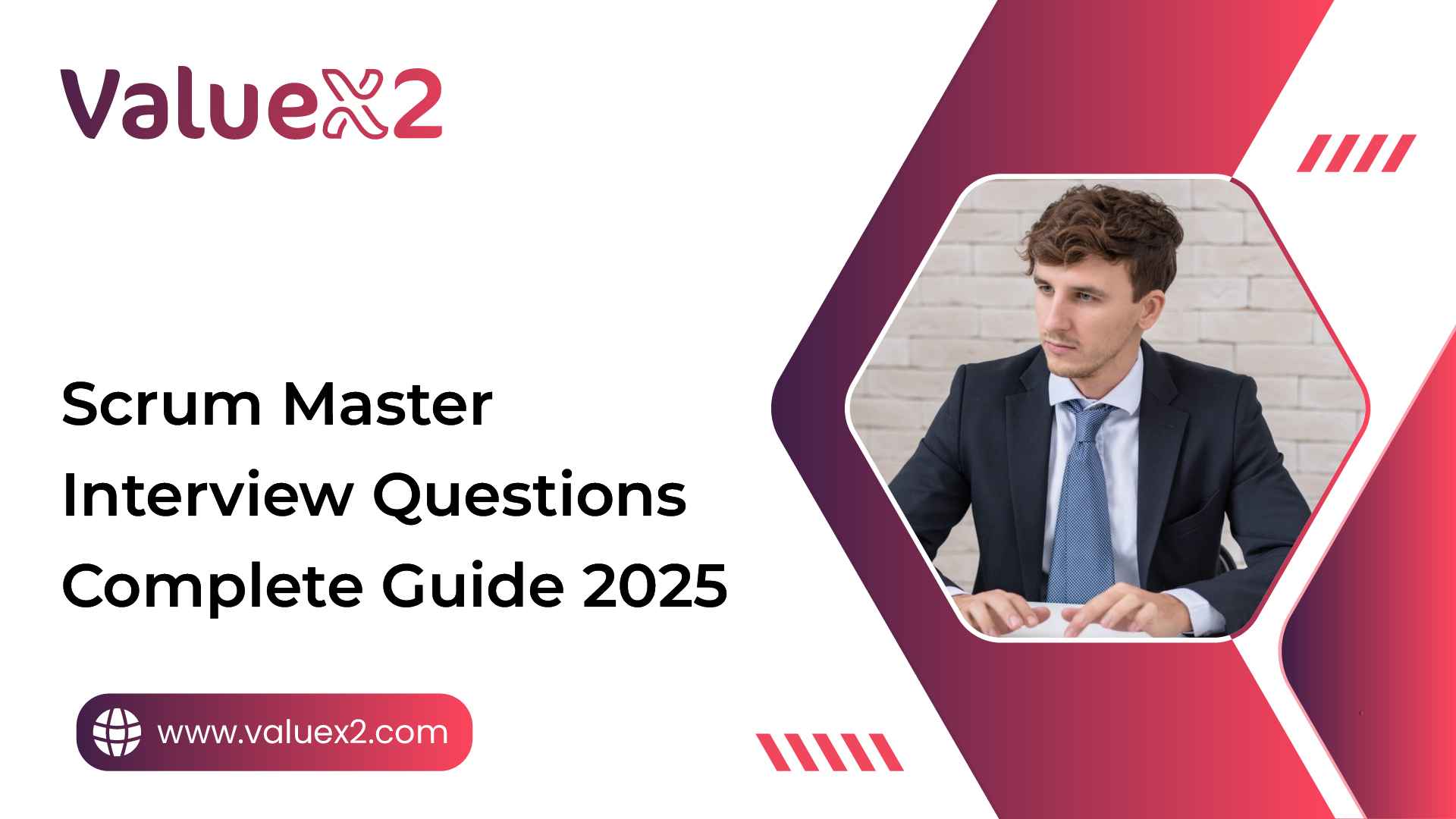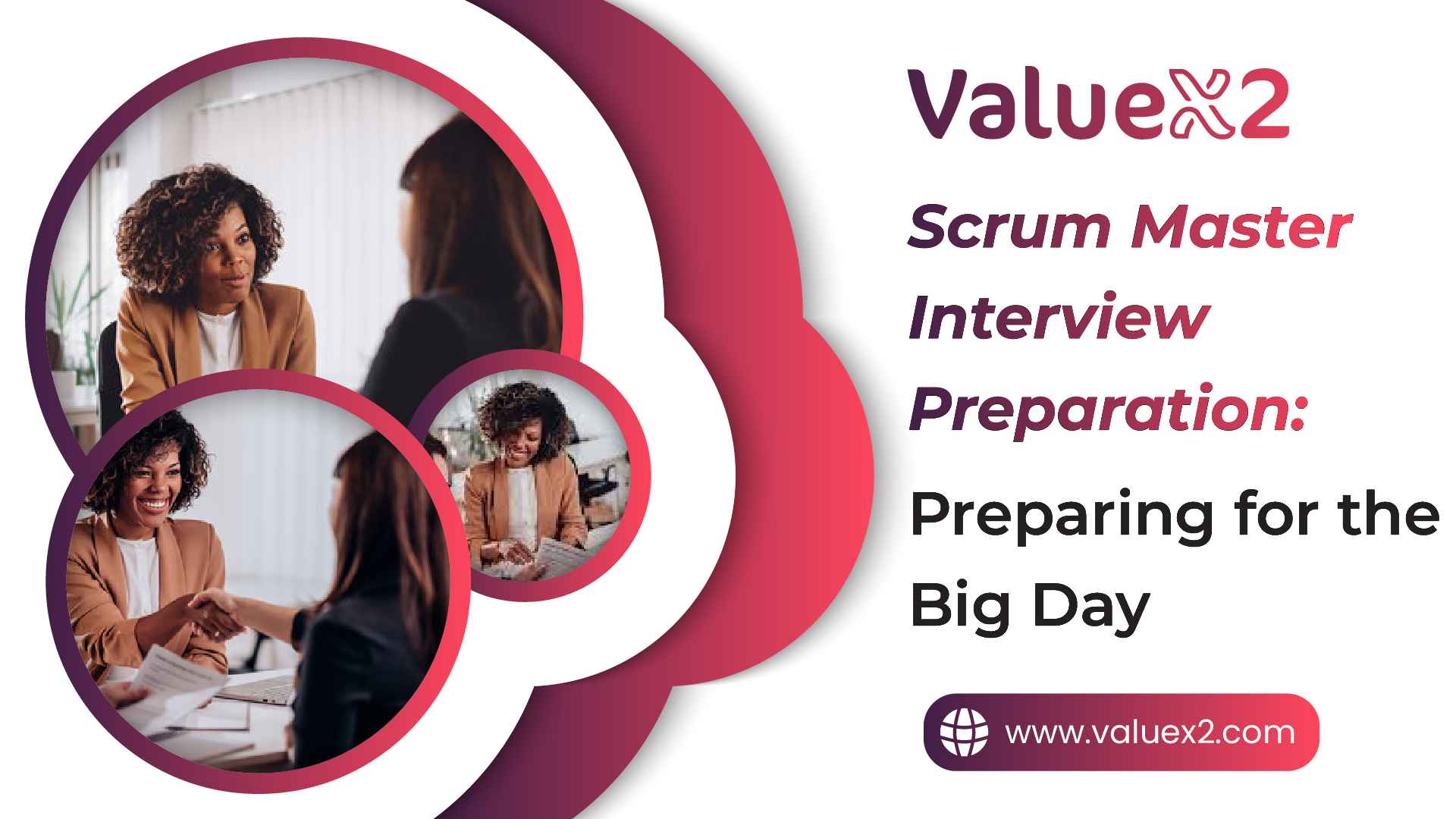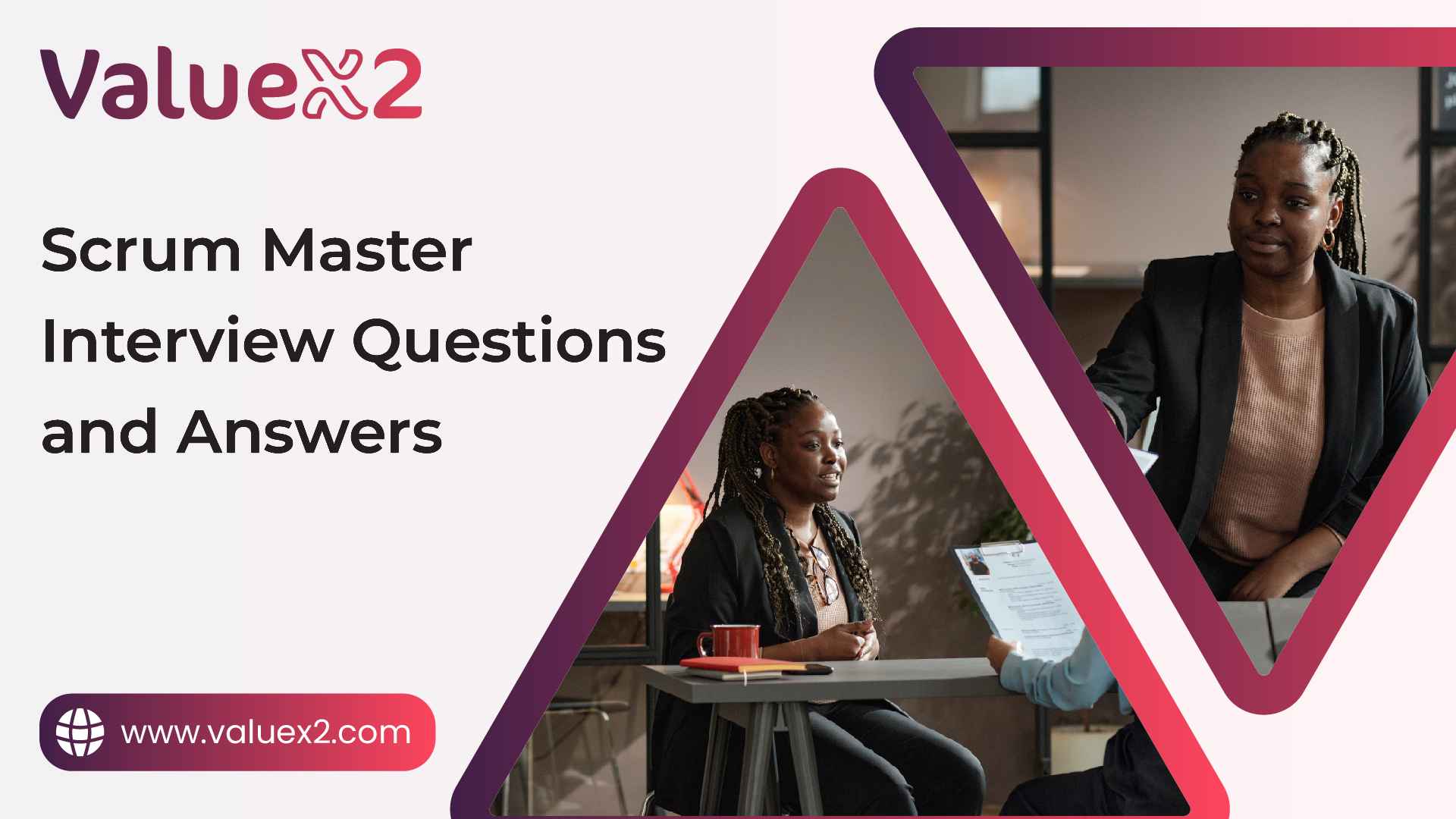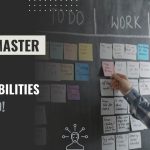We came across an exciting stat that 73% of working professionals crack up during a Scrum Master interview. In this guide, we’ll tell you the secrets and prepare you for your dream role!

Welcome to our complete Scrum Master interview questions guide 2025. Whether you’re an experienced Agilist or a newcomer searching for a first job, our guide takes you through all the interview steps. Here, we have identified the most popular Scrum Master interview questions closely for you, with expert advice, and use real examples and methods so you can answer some common and some unique questions boldly. In the end, you will know how to crack the interview and do well in your job.
Knowing the Scrum Master Role
A Scrum Master is not a facilitator but a servant leader who supports the agile process, working with and helping the team deliver the highest value. So, while you prepare for your interview. You need to keep a few things in check, like proof of your technical competencies/certifications, interpersonal skills, and leadership ability. Our guide will help you link your experience with the best agile practice to hold the position of a Scrum Master.
2025 Scrum Master Interview Preparation: Preparing for the Big Day

Here are a few preparation tips that would help you prepare well for your Scrum Master interview:
- Study Agile and Scrum Basics: Be 100% prepared when it comes to the basic concepts, including sprints, retrospectives, and daily stand-ups.
- Consider Your Personal Experiences: Use the STAR (Situation, Task, Action, Result) method to bring stories in conflict resolution. Just give your recruiters examples of how you’ve dealt with similar situations.
- Get Knowledge of the Company Culture: Know the company’s level of agile maturity and frame answers to reflect the value that you can offer. Your profile should look very relevant when it comes to an interview. Make sure your answers align with their work culture.
- Practice Communications Skills: You need to communicate well and effectively to be a Scrum Master. Practice giving clear and thought-provoking answers in front of your mirror, or practice doing it with your work friends. You mustn’t fumble, and even if you do, you carry on what you were saying and limit the damage.
- Scenarios from the Real World: Discuss scenarios of previous projects that have upgraded using Agile. Be ready with examples, and keep saying things that are relevant to your application. This is a subtle way of suggesting that you’re a people person, which is very much required for the job.
Scrum Master Interview Questions and Answers

Below is the list of Scrum Master interview questions for 2025, handpicked carefully to test and demonstrate your knowledge. We have crafted these questions to begin with the fundamentals of agile and proceed to manage complicated team dynamics.
1. What do you understand by the term ‘Scrum framework’?
Answer: The Scrum framework refers to an agile method of working that focuses on incremental delivery, teamwork, and continuous improvement. It comprises three significant things. Roles, Ceremonies and Artefacts.
The roles included in the framework are (Scrum Master, Product Owner, and Development Team). Coming to ceremonies (sprint planning, daily scrum, sprint review, and retrospective) and lastly, Artefacts (product backlog, sprint backlog, and increment)
This is a fundamental question; you can answer it in your way. The idea behind this question is to understand your understanding of the framework.
2. How do you make sure your sprint planning session is successful?
Answer: I turn sprint planning into a team activity by always ensuring there is a well-structured product backlog, a clear definition of the sprint goals, and open communication with everyone on the team. One of the key things that Scrum Masters often get wrong is breaking more significant tasks into smaller ones and using planning poker as part of effort estimation. Still, I can associate priorities with the actual capacity of my team to comprise my process.
This is an excellent example of planning capability, and this is one to keep in mind!
3. Describe an instance in which you and your team resolved a conflict. How did you solve it?
Answer: I can recall one case that was different as the priorities among the team members were different. I had arranged a special meeting where all members of the team could voice their concerns and also have open discussions. What helped us was laying down common objectives and finding a middle ground, which set us back on track, thus leading to better teamwork and sprint results.
This real-life experience illustrates Scrum Master interview methods very well.
4. How do you keep transparency and continuous improvement within your team?
Answer: I ensure this by having regular meetings to discuss what works and what doesn’t, and frankly, I crack a few good jokes in those meetings. But on a serious note, I use data and keep the floor open for any feedback; I want my team to learn from every sprint.
This example is excellent as it shows that you do understand the essence of agile methodology, and you know you want to improve! Also, you might have chances to lighten up the mood of the room, so you should definitely not miss those chances.
5. How would you train a new Scrum team?
Answer: I start by giving them basic training about the principles of agility and the Scrum process. I walk them through workshop exercises and observe exercises on best practices involved in Scrum, like daily stand-ups and sprint reviews. My objective is to make them well-versed in the process.
This example fantastically illustrates that you want your team to grow, which is a sign of a great Scrum Master.
6. How do you handle changing requirements with the scope of a project in the middle of a sprint?
Answer: While changes are not desired in the middle of a sprint, I address them by looking at how they affect work in process and asking the Product Owner if the change is essential. If it is, I assist the team in re-ordering tasks so that we can still complete the objective of the sprint.
This is a good question to check how you deal with stressful scenarios.
7. What measures do you use to check the performance of a team?
Answer: I use a blend of quantitative and qualitative measures, i.e., velocity monitoring, burn-down charts, and team members’ satisfaction surveys.
They identify things to improve and areas to celebrate, based on agile tenets and being high-class Scrum Master interview questions.
8. How would you handle an underperforming team member?
Answer: I overcome underperformance by conducting one-on-one coaching sessions to understand why they are creating any problems, setting clear expectations, and working on an improvement plan. Also, I provide them with peer-to-peer support and the right training material for improvement in their performance.
This is a general Scrum Master interview question, and you might have to give an actual example of how you’ve helped someone.
9. What are the ways you implement to enhance effective communication in a remote working environment?
Answer: For distributed teams that are not working from the office, I use remote tools like Zoom and Google Meet. I also do online retrospectives to keep the remote team on the right track and make remote work as effective as in-office work.
If you want to know about the best video conferencing tools for businesses, make sure you read this blog!
10. How would you handle resistance to change within a team?
Answer: I first identify the reasons for the resistance, and then I share the benefits of change through open communication, a few jokes, and a few fact-based examples. By implementing the changes gradually, we can enable the team’s seamless transition. It might take some time, but it’ll happen eventually.
This example shows that you want to keep things on track, even while there’s potential to go wrong.
For more examples of interview scenarios and ideas for additional questions, you can watch this YouTube video.
Final Thoughts
This Scrum Master interview questions 2025 guide is designed to help you with the knowledge and skills you will need to excel at an interview. With a perfect blend of meticulous preparation and real-life scenarios, coupled with expert Scrum Master interview skills, We can guarantee that you’re ready to tackle whatever life throws your way. And remember: your journey doesn’t end here. You can embrace continuous learning by enrolling in our PSM or SSM training and certification. It might be the right step to getting into your agile career dreams.
Good luck on the journey to becoming a successful Scrum Master and on a successful trip filled with learning, growth, and good leadership!
Changing to Continuous Improvement with ValueX2
As you complete your guide before the Scrum Master interview, remember that preparation is a continuous process. Continuous learning is how Agile processes are learned. That is where ValueX2 comes in. Our PSM and SSM certification courses are meant to augment your agile knowledge and acquire practical experience, making you an expert in any Scrum Master position. Adding ValueX2’s training to your learning will give you an edge by keeping you updated with best practices and industry standards.
Frequently Asked Questions (FAQs)
Q1: What is the Scrum framework?
A: The Scrum framework is an agile methodology that works on working in small increments, collaboration, and continuous improvement. It consists of defined roles, events, and items that constitute an open and adaptive work environment.
Q2: How do you resolve conflicts in your team? What would you say if asked?
A: Use an authentic experience where you identified the conflict, got the team members together for a productive discussion, and assisted them in making a decision that was based on Agile values. Use the STAR method to give a clear and concise answer.
Q3: What is the most essential thing in a sprint planning session?
A: Let the whole team understand what the sprint goal is. It’s all about clear communication, setting the right expectations, and having the team agree on what is going to be done as a group.
Q4: How do you lead a new team toward agile methodologies?
A: Start with the basics, introduce agile principles step by step, and take the team through hands-on workshops and mentoring. The focus is on learning by doing and regular open communication to make it a smooth transition.
Q5: What are the most significant metrics I need to refer to when describing team performance measurement?
A: You need to describe both the quantitative and qualitative metrics, such as velocity, burn-down charts, and team satisfaction surveys. How will these metrics help track progress and where improvement is required?
Q6: How do you adapt your communication style to distributed teams?
A: In distributed teams, use digital collaboration tools and schedule regular video calls and land communications schedules with daily check-ins and virtual retrospectives.

Bhavna is an Agile Coach and Consultant with over a decade of experience in advisory, corporate finance, IT assurance, and operations at Big 4 and within the industry in the UK and India. She has recently been the CEO of a start-up where she implemented agile practices within HR, Marketing, and Product teams.
She is also a SAFe® Practice Consultant (SPC) and authorized instructor for ICAgile Agility in HR (ICP-AHR), Agility in Marketing (ICP-MKG), and Business Agility Foundations (ICP – BAF) training courses. She provides training for agile transformation to corporate, public, and private batches, as well as consulting for enterprise agile transformation.






